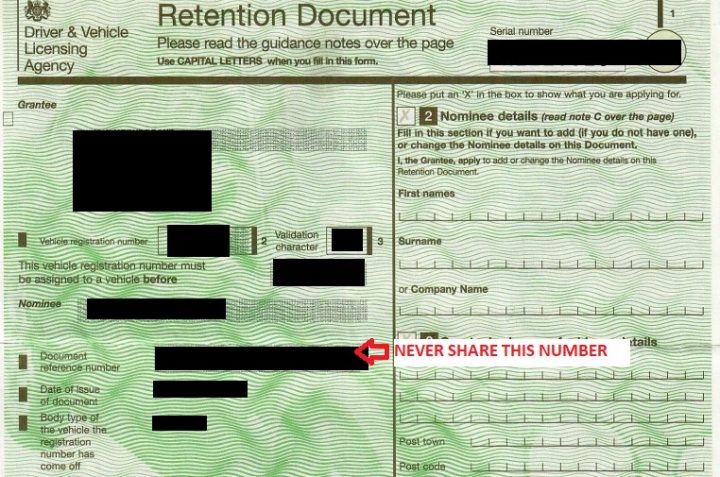Fraudsters are targeting car owners for their private number plate registration as the new 73-reg is about to be launched.
Owners stand to lose thousands of pounds in private number plate scams on social media and are helpless to stop it being repeated unless they take security steps.

Jon Kirkbright, sales director at Platehunter, has over 11 years of experience in the motor industry buying and selling registration plates.
In recent months, he has noticed a worrying trend that has led him to issue a warning to drivers or those in the market to buy or sell a private registration plate.
Jon has received multiple reports of people making accounts on social media and claiming to work for his company. These scammers are charging people thousands of pounds for a number plate that they are not in a position to sell in the first place.
|
He is concerned that people are falling victim to these scams, and that it could cause damage to his business and reputation. Jon said, “It is terrible to think that some people are being scammed out of their hard earned money by people pretending they work for my company. “Facebook allows people to say they work for any company, and the company does not get alerted or have to verify the claim which is particularly worrying. “The scammers are very clever and so convincing that they can be hard to spot – but you should always be suspicious when online transactions are involved – especially on social media.” |
Scammers have adopted a new method of cheating vehicle buyers.
Instead of using websites to advertise their “stock”, the fraudsters are turning to social media platforms including Google, eBay and Gumtree. They give false locations but get them pinned to maps and unsuspecting buyers are duped into believing the premises and businesses exist, while paying on-line. They have even successfully had a warnings of fake operations removed from social media. Now some media platforms are investigating and removing listings to protect buyers, but the scammers may turn up on other sites and with different names and addresses. |
Jon has spent years building up his client base after making reliable and legitimate sales. He is now sharing his top tips on how to spot a scam before falling victim.
With a copied but false number-plate the legitimate owner may find they’re sent fines for motoring offences and congestion charging, parking offences and maybe more serious crimes such as fuel theft drive-offs.
Here are the main private number plate scams, and how they are conducted:
- Sharing your certificate number online could mean that your private registration plate can be stolen instantly. A seller might unknowingly share an image of their certificate only to find that it has actually been stolen already and has been applied to someone else’s vehicle by the time a legitimate sale takes place.
- Some fraudsters may act as though they are genuinely interested in purchasing a plate, and ask the seller to provide a picture of the certificate as proof they own the registration. The scammer can then use the certificate number to steal the plate, as well as using the image of the certificate to further scam other buyers.
People may steal certificates from their family or friends without their knowledge. In this case, the rightful owners of the registration plate may not be aware of the crime until much later when they try to use or sell the registration, to be told that it is being used on another vehicle. In this case, the owner can raise a complaint to the DVLA and will be reissued with the plate – even if the new owner thought they had made a legitimate purchase.

